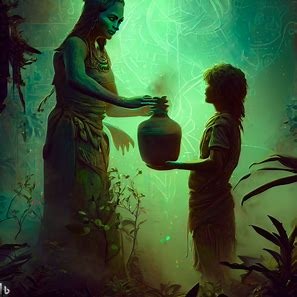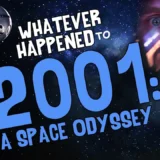
OBIR: Occasional Biased and Ignorant Reviews reflecting this reader’s opinion.

Drunk Slutty Elf and Other Stories – by D.G. Valdron
Published by Fossil Cove Press, Winnipeg, Manitoba, Canada, 2022.
Cover art: by Jimi Bautista
Note: All stories are by D.G. Valdron
Drunk Slutty Elf
Premise:
What if incompetence is the key to success?
Review:
The tale begins with Salvra the ninth level thief and female elf of the title, imbibing a drink so disgusting it makes a Pan-Galactic Gargle Blaster look tame. In fact, as a general rule, life, morals and ethics in this D&D world of Elves, Orcs, Drows and even humans, albeit humans with perverted criminal minds, is sadly lacking, but a paradise for any being with an eye for the main chance. Lawyers flourish here. In a sense, this fantasy world is a parody of the real world, with supernatural criminality a mere exaggeration of normal human behaviour.
Even better, the story is a slap in the face or wake-up call for anyone who assumes first contact between aliens and humans will automatically work out because both species fit Carl Sagan’s definition of civilized civilizations, being intelligently intellectual and all. Maybe the aliens, but certainly not our species. Darkeyes is a marooned alien who hires Salvra to recover an artifact of importance to it. What the alien finds endlessly frustrating, and which provides much of the humour, is the singular fact that all the supernatural beings interpret it and its mastery of technology, as opposed to magic, entirely from their own world view. The alien’s ability to explain what it is and how it functions is totally useless. It is forced to communicate as if it were wholly of the supernatural world, a task which it finds extremely demeaning and distasteful, but kudos to it for trying. In sum, the value of this story is that, deep beneath the layers of humour varying from subtle to broad, it demonstrates how impossible it will be for humanity to genuinely communicate with aliens. Our human nature will get in the way.
Oh, and I greatly enjoyed the humour. Maybe not all of it is to everybody’s taste, but I had fun reading it.
Waiting for Gorgo
Premise:
What if a giant monster is the only weapon a Kingdom can defend itself with. Does that limit its options? After all, in diplomacy a giant monster lacks subtlety. Pretty much a use it or lose it device, like a nuclear weapon.
Review:
I’m a huge fan of “Gorgo,” the British Godzilla. I own a Bluray of the 1961 film and have probably watched it a dozen times. However, as in the Samuel Beckett play “Waiting for Godot,” in this story the title character never appears. The existence of Gorgo/Godot is irrelevant. What counts is the ever-shifting vision of the character those-who-wait are discussing. In this case, not two down-and-out tramps, but seven disreputable men chained to a boulder for sacrifice. But at least they are armed and have a choice of putting up a fight or committing suicide. Along come a few self-obsessed foreigners to complicate matters.
Now, I have never read or seen “Waiting for Godot.” Once critic commented “absolutely riveting boredom,” I seem to recall. Doesn’t sound like my cup of tea. I assume the named characters among the seven are in some way similar to the characters in the play, but don’t actually know. But it doesn’t matter. The entertainment value of the story does not depend on any homage to Samuel Beckett’s play.
Instead, we are offered a cascading escalation of lies, flimflam and hype on the part of the character Buky to convince the foreigners to behave in such a way as to inadvertently aid the condemned. Given the cynicism and skepticism of said foreigners the task appears insurmountable, yet there’s no hint of desperation in what Bucky says. He is so overwhelmingly confident it is hard to counter his logic.
What I particularly like about this story is that it demonstrates that logic can be used to prove anything and that it is often when people think they are thinking rings around the people they are arguing with that they are at their most gullible. The best way to defeat logic is to remain stubborn. Which reminds me, I remember reading that the only allied troops captured during the Korean war that the Chinese Communists could NOT brainwash were the Turkish soldiers. They remained true to their faith in themselves and Allah and simply could not be budged from their self-image. But I digress.
It is arguable the play “Waiting for Godot” is somewhat more intellectual than the movie “Gorgo,” (though I suspect the latter is more fun to watch). True, this story leans more toward Godot than Gorgo, but without sacrificing entertainment value. The house-of-cards illusion Buky constructs through sheer force of logic is delightful. Diplomats take note. Valuable object lessons lurking beneath the surface here. Another fun read.
The Romance of the Undead
Premise:
Just how romantic is the life of a vampire?
Review:
The 1931 Bela Lugosi “Dracula” film was released on Valentine’s Day and marketed as an unusual love story. “Dark” Eastern-European romantic figures were at their height. Lugosi’s first big hit on stage, in 1922, had been an off-broadway production of “The Red Poppy” in which he played “The Prince of Apaches,” a type of romantic criminal (nothing to do with the First Nations tribe), his character noted for his torrid love-making. It could be said he was typecast as a “dangerous lover” till the type went out of vogue. Point is, the vision of the romantic Vampire as such began with him. (“Nosferatu” doesn’t count. He was more of a straightforward demon-style monster, in my opinion.) Christopher Lee, in numerous Hammer films, reinforced the image. But what would the reality be like?
Poor Rutger. Every time he climbs out of his coffin his fans are waiting for him. He’s very much living the life of a movie star chased by paparazzi. He can’t harm them, because they’ve left sealed envelopes full of information about him with lawyers, to be opened in event of any of them going missing. That would put the Vampire hunters on his trail. He’s forced to put up with his fans, who tend to not only idolise him but interfere with his hunting as well, making it difficult for him to get a decent bite no matter where he goes.
Even without his fans, Rutger’s life is dreary and humdrum, positively repetitious and boring, to tell the truth. The need to not call attention to himself prevents him from doing the sort of flashy, dramatic hunts shown in the movies. He has to blend in. Besides, sucking human blood isn’t nearly the gourmet delight portrayed in books and films. True enough, obsession can make any horrific or disgusting pastime seem attractive, but not when you’re jaded and bored. Then it is like working at a job you hate but can’t give up because there’s no alternative available on the job market. Life sucks when you’re a Vampire.
The two greatest strengths of this story are the hilarious contrast between Rutger’s actual life style and his fan’s silly, film-derived expectations, and Rutger’s own cynical musings over his daily, petty humiliations which, when you think about them, are utterly logical and inevitable. Bizarrely, I am reminded of the ancient Roman poet Ovid’s “Art of Love” in which he advocates the correct approach to seducing a girl, and then gives advice on how to twist your thoughts to reject a girl once you’ve decided to give her up. This story is a similar study of romantic aspirations versus harsh and somewhat repulsive reality. Rather brilliant in its way. You’ll never look at Vampire films again without having to suppress the urge to giggle.
Alice in the Mirror
Premise:
What if you step into the looking glass and can’t return?
Review:
This is essentially a Sherlock Holmes pastiche involving a mystic detective by the name of Charles Smith. His Watson, name of Renfrew, is out of the picture as the two have parted their ways because of the dreaded Isswitch Church affair. Charles has been called to the home of Sir James Fitz-Sterling, a dear friend last encountered in the case of the Lancashire Mummy back in 1994. Though set in modern times, the story reeks of the late 19th century, in a good way.
All takes place in Sir James’ comfortable mansion, which is lined with multiple mirrors. Indeed, the drawing room has one entire wall in the form of a mirror. Turns out Sir James’ beloved bride of one year standing is trapped in the mirror world and can’t return to the non-mirror image world, even though that was where she was born. Sir James, himself a mystic detective by hobby, had been called in years ago to solve the problem. He was unable to do so, and chose to fall in love with the victim instead, eventually marrying her. But the marriage has proven to be a source of… certain frustrations. This is why Sir James has summoned his good friend Charles. It is hoped he can resolve the problem.
One of the attractions of the story is the successful reproduction of the gentlemanly and civilized world of Sherlock Holmes (apart from the tawdry manners of criminals, of course), but the chief attraction is the revelation of sundry details in the almost-successful love affair between a normal man and the mirror-image of a woman. Even the most mundane of practices have to be handled in an atypical way. I suppose the basic problem is not unlike coping with any sort of physical handicap. You do what you have to do. Still, it would be nice to return to normal, if that is at all possible. A conundrum Charles is not sure he can solve.
The measured, calm discussion of the problem, which includes the viewpoint of Sir James’ wife Alice, is, to my mind, the chief pleasure of this story. So much more confidence-inspiring than the histrionic panic attacks which seem to be the primary attitude toward problem-solving in today’s world, or at least in the world of social media influencers. Sir James and Alice are in good hands.
Though presented in a traditional manner, I consider the problem, and the details around it, to be a triumph of originality. I’m impressed.
Armageddon When?
Premise:
What if the Apocalypse lacks traction? Will its ratings fall?
Review:
It’s extraordinary how many people are eagerly waiting for the apocalypse. The Rapture crowd and all that. I don’t believe in it myself. What if both Christ and the Antichrist turn out not to be the influencers they thought they would be at the final showdown between good and evil. Can they tolerate being shunted off to the bush leagues?
A classic example is the cliché prediction that, if Jesus were to appear today, he’d be mistaken for liberal scum, a veritable hippie, and run out of town. And as for performing miracles, he’d probably be advised to go to the Vegas shows and learn from the expert magicians if he wants to improve his act.
And as for the Anti-Christ… more like the anti-climax compared to the worst of the evil jerks who’ve ruled assorted nations over the last hundred years or so. Even if he did succeed in making a splash, he’d just be absorbed into everyone’s pet hates as in “I knew he was a Democrat” or “I knew he was a Republican,” and so on. Wouldn’t be allowed to stand on his own reputation.
And that’s the core of this story. Both Christ and the Anti-Christ are portrayed as being out of touch with modern sensibilities. Its as if they are aging entertainers trying to jumpstart stalled careers. They’re still respected but… meh, it’s hard to get bookings on the Oprah show. Even Archangel Gabriel and the formerly much celebrated Beast of the Apocalypse can’t get good gigs.
The end of the story has to do with Christ and the Anti-Christ deciding to go head-to-toe anyway. The result can’t be found in any biblical prophecy I know of.
I’d describe this story as yet another of Valdron’s “essays” on the topic of the power of human misinterpretation and ability to miss the point. No wonder we don’t know how to rule ourselves. We haven’t got a clue. And, quite possibly, neither do Christ or the Anti-Christ. Of course, this story isn’t about them. It’s about human frailty and our inability to rise to the occasion. We’re poor material to work with. Sinners, as some would say. Me, I take human nature for granted. It is what it is. But, at least we’re sort of amusing, from time to time. We’re not completely worthless. Possibly worth fighting over. Makes you ponder the matter, this story does.
Simulaw
Premise:
What if everyone, literally everyone, possessed the technology to sue everybody, and did?
Review:
Susan is an expert in law, thanks to the Simulaw computer program, but then, so is everyone else. Extraordinary how polite everyone has become. The only way to avoid lawsuits. Wearing an exoskeleton festooned with cameras recording your every move and statement as potential evidence is a bit cumbersome but also a vital necessity if you want to intimidate everyone you meet into not suing you. What the novel “1984” did for state surveillance, this story does for self-surveillance. Liability is your responsibility. Your number one priority. Your quality of life depends on it.
Valdron is, by profession, in addition to being an author, a highly experienced lawyer. This story benefits from his musings on the future of law. It represents an insider’s point of view. Though it has its amusing bits, it is mostly a subtly disturbing vision of a potential dystopia that may eventually come to pass. It was Edward Gibbon, he of “The Fall of the Roman Empire” fame, who observed that an excessive rise of litigation is a symptom of an empire on the verge of collapse. That is the silver lining. Modern civilization may well implode before we come to the point illustrated in this story. At last, something to hope for. The alternative, as described in this tale, is truly grim. Powerful stuff in its implications, or so it appears to me.
Courtesy Call
Premise:
The ultimate sales pitch. Nasty.
Review:
Gotta say, this puts me in mind of Pohl and Kornbluth’s classic 1953 satire of Madison Avenue Advertising, “The Space Merchants,” in which advertising companies surpass governments in power and influence. Only, in this case, it’s a horror story. If you think telemarketers are bad now, wait till they make the Mafia look like kindergarten teachers. I can’t even begin to describe the story without giving too much away. Dystopian visions of utter helplessness in the face of totalitarian regimes have come in numerous forms. This one is new to me, and exaggerated though it be, seems terrifyingly plausible.
I’ve heard there’s an anti-consumer movement growing. Don’t know what it’s called, but I believe it’s a grass-roots sort of thing. This horrific story could well add impetus to its growth. It implies consumerism could wind up our worst nightmare. A concept I find creepier and more unnerving than giant bugs or alien blobs. Push come to shove, we are, after all, our own worst enemies. How easy it is to exploit our nature.
Silver Giant Sexy
Premise:
In 1954 the first Kaiju, the giant monster Ogazar, struck Tokyo. After him, numerous Kaiju showed up. Was the human race doomed?
Review:
Fortunately, giant humanoids from off Earth occasionally descend to fight the Kaiju on behalf of humanity. Junichiro Takahashi, a member of the Science Rescue Force, has a secret, namely a psychic bond with the so-called Silver Giants. Together, with fellow SRF Monitor Tomiko Sakano, they discover the truth behind the Kaiju Wars. It is not what everyone expected.
Again, can’t say more without revealing too much. Thing is, it may well be the underlying “explanation” behind all the Kaiju films by Toho and other Japanese film studios. Seen in that light, said films are even more entertaining. Not exactly what the script writers had in mind, but I think Valdron’s interpretation may be quite valid or, more to the point, should be. Quite the insight on his part. Kaiju films have many dedicated fans. Valdron’s suggestion could bring in quite a few more. I find this hilarious.
A Hard Day’s Blight
Premise:
What’s a devil supposed to do when the tormented in Hell get bored?
Review:
I’m not afraid of death, in the sense that I don’t think not existing for billions of years before my conception was any hardship, and not existing for billions of years once I die will be equally carefree, but I fear pain. So the concept of Hell, eternal suffering, I refuse to believe in because I deem it too sadistic a creation for any God worthy of worship. Be that as it may, I take it for granted that being flayed alive might be painful, but roundabout maybe the millionth time it happens, not so much.
Valdron runs away with this concept in a the story of a Hell torturer beginning to think he’s no longer “appreciated” by his victims. In part, it reads like a parody of office life, but mostly, it’s a delightful run-through of all the comic possibilities Hell offers. For example, one minor detail, all mosquitos wind up in Hell but, frustratingly, they’re the only creatures who actually enjoy being there. The minor devil protagonist is, more or less, going through a hellish equivalent of male menopause, a “life” crisis of sorts, and there’s nothing in his contract with his employer that is designed to assist. Satan isn’t much on offering perks. This story is good, harmful fun, and I enjoyed it tremendously.
The Furry Tentacles of Menace
Premise:
What if the British Upper Class are not quite what they seem?
Review:
Once again, we meet with Sir James Fitz-Stirling and Charles Smith, psychic investigators. This time they are listening to Collision Peters, a respectable accountant who has uncovered a dastardly plot positively Lovecraftian in nature. This is not as serious a tale as the first one, rather silly in fact, but marvellous in its evocation of Lovecraftian logic in delineating the unspeakable conspiracy by nameless entities of titanic power subtly manipulating the human race towards its doom. After all, first class accountants know all about these sorts of shenanigans as practised by mere humans, so cottoning on to what unfathomable beings from beyond the stars are up to is child’s play. Trouble is most people are put to sleep by in-depth conversations with accountants on any topic. Only Sir James and Charles, who each possess morbid curiosity in abundance, can be counted on to pay attention and conceive of a solution. Whether it can be carried out or not is another matter.
A broad parody of Lovecraft, but one I found cheerfully amusing. Kept me grinning.
Note: Another seven stories to go, but I’ve run out of space and time so here I stop. Based on what I’ve read thus far, I assume the remaining stories are equally as enjoyable.
CONCLUSION:
D.G. Valdron is an utterly fearless writer. He’s not afraid to be grim. He’s not afraid to be silly. He writes to please himself and is very good at that. Frankly, I think he’s one of the most original short story writers available today. His habitual dark opinion of the human race adds spice to his humour, and even his most light-hearted stories have layers and layers of perceptive meaning worth unpacking. He is one of the most intelligent and subtle authors I know. Overall, I would put him in the same category as Robert Sheckley or Fredric Brown, which is to say, sardonically satirical and always entertaining. I guarantee you will enjoy reading this book.
Check it out at: < Drunk Slutty Elf >
Source: Auto Draft










Recent Comments